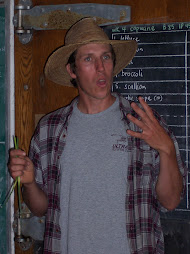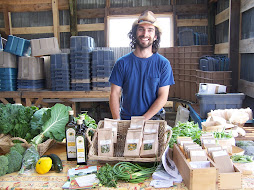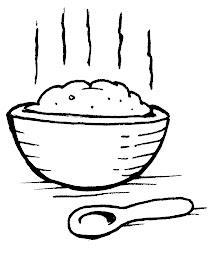

True Grits are made-from-scratch dishes using local, fresh and organic foods. Truly authentic. Real simple.





Did you know that the average food product travels about 1,500 miles to get to your grocery store? And that transporting food accounts for 30,800 tons of greenhouse gas emissions every year?
And with all the brouhaha in the media, about food and environmental concerns, many important food issues have been politicized and turned into buzz words, like: organic, genetically engineered, cloning, global warming, eco - anything. Heck, the terms are bandied about so readily I wonder if we truly understand what we are talking about?
“In Food, Inc., filmmaker Robert Kenner lifts the veil on America’s food industry, exposing the highly mechanized underbelly that has been hidden from the American consumer with the consent of their government's regulatory agencies, USDA and FDA.
Our nation's food supply is now controlled by a handful of corporations that often put profit ahead of consumer health, the livelihood of the American farmer, the safety of workers and our own environment. We have bigger-breasted chickens, the perfect pork chop, herbicide-resistant soybean seeds, even tomatoes that won't go bad, but we also have new strains of E. coli—the harmful bacteria that causes illness for an estimated 73,000 Americans annually. We are riddled with widespread obesity, particularly among children, and an epidemic level of diabetes among adults.
Featuring interviews with such experts as Eric Schlosser (Fast Food Nation), Michael Pollan (The Omnivore's Dilemma, In Defense of Food: An Eater's Manifesto) along with forward thinking social entrepreneurs like Stonyfield's Gary Hirshberg and Polyface Farms' Joel Salatin, Food, Inc. reveals surprising—and often shocking truths—about what we eat, how it's produced, who we have become as a nation and where we are going from here.” (excerpted from the website)
Asparagus Vinaigrette
1 # asparagus
4 eggs
3 T good olive oil
2 T lemon juice (+ 1 T grated rind, opt.)
2 tsp Dijon style mustard
After removing the tough ends off the asparagus, place in water in a pot large enough to lay them down, barely cover with water and put on a lid. Bring to a boil. Cook about 2 min (or longer if thick). A knife inserted should be with just a little resistance. Don’t overcook or they’ll be mushy.
Hard boil 1 egg per person (5 min) and immediately drain water and cover with cold cold water. This will help with shell removal. Remove egg shells and slice in slices or wedges.
To make vinaigrette: Whisk together lemon juice, oil, S&P to taste. Grate in lemon zest, if desired. Set aside.
Drain asparagus, rinse quickly under cold water to stop the cooking. Lay out on dishes, top with egg and pour vinaigrette over.





